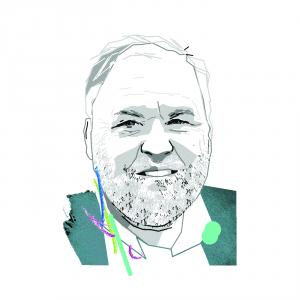Ten years ago saw the launch of the Total Place programme. It was a “whole area” approach to delivering better public services at less cost. It tried to make a step change in service improvement and efficiency at the local level, as well as
across Whitehall.
It was not perfect – I should know, we at the Leadership Centre were its instigators. It originated in more expansionary times and was caught in the crossfire of austerity. At its heart was the premise that money earmarked for a community or area needs to be spent in a way that maximises the outcome for the people who live and work there. To put it in financial jargon, Total Place put as much emphasis on allocative efficiencies as on technical efficiencies.
Total Place left an impact, not least through the Greater Manchester devolution deals: even at the height of the austerity programme, public expenditure in Greater Manchester did not go down – total expenditure remained the same, but the pattern of spend changed. The programme was about balancing the books through a demand-reduction approach to finance – an economic argument that resonated with government and resulted in GM getting more power.
Today, we need to refocus and think more systemically. Place needs to become our basic building block. The Local Government Association has always stepped back from discussions about place allocation because different member authorities have different interests. As a consequence, the LGA articulates the need for more funding for specific services. But in that beauty parade of needy causes, it’s the nextdoor neighbour (typically, health) who always wins.
We need to be bolder. Of course, different places will argue they are badly treated. Living in Hackney, I can give you a passionate and robust argument about the particular needs of diverse poor urban communities. If I lived in Cornwall, no doubt I would be equally passionate about the needs of low-density, dispersed rural communities. One thing I do know, however, is that,, to be effective, the configuration of services needed is different in Hackney than it is in Helston.
What we need are medium-term financial strategies for places. We know that health services account for only 20% of health outcomes, but, despite this, demands on A&E are increasing. The fistfight between local government and health about social care is a distraction. The long-term challenge is that life expectancy has been growing much faster than healthy life expectancy. Moving to a more systemic approach allows us to think about how we get those two lines to track one another.
If local government is going to move into this place, there needs to be honesty when authorities find themselves in financial peril. To position itself as an honest broker in discussions around place, local government cannot afford another Northamptonshire. But equally we cannot wait for permission to act. Given the Brexit bottleneck in parliament, anyone expecting decisive government action may have to wait a while. One of our slogans in the Total Place era was “proceed until apprehended”. So let’s get going.
Window of opportunity
CIPFA is well placed to help us do this. Its membership straddles both health and local government. Health is not the sole area that needs to be addressed – the next iteration of the Work Programme is pretty important too – but health spend is so significant that place budgets are meaningless without them.
And we have this window of opportunity. As sustainability and transformation partnerships and integrated personal commissioning are implemented, place is now, at least, in the health lexicon. Local government purists might say the commitment is shallow, but if you miss one configuration of the stars, you can wait a long time for the next.
There are two things standing in the way of pushing place up the agenda. One is the lack of coordination between the people leading the finance function in local government and the rest of the sector. The other is the debate – or lack of it – coming out of local government.
In any discussion between senior local government figures, the conversation will inevitably turn to finances. The fortunate ones will say next year’s budget position is OK; the less fortunate will detail exactly how many millions of savings they have yet to identify. The chancellor’s July announcement may have afforded some breathing space, but no one is under any illusions about the challenges ahead. Of course, local government needs more money, but I want to reflect on a curious fact.
Public sector leaders and chief executives are now meeting up more regularly than ever. If you were the lead member for adult or children’s services, for example, you could attend a different conference every day (culminating in the national children and adults conference), each describing how services could or should be improved. There is, however, one group that stays at home – the lead members for finance. It’s not just that they don’t meet each other; they don’t meet other finance and resource directors either. And, as those of us who have been to the (excellent) CIPFA annual conferences know, these are pretty much member-free occasions.
We urgently need to correct this. Of course, the sheer pressure on budgets has forced local authorities to focus internally on making cuts, often in-year, and concentrating purely on the short term. Now, more than ever, we need to have a dialogue about medium-term financial strategies, one that involves members and officers from all disciplines learning from each other. A constant feature of an authority that has hit the buffers in some service areas is that it has become so inwardly focused that senior figures don’t circulate. This paucity of discussion on financial strategy makes it harder to notice who is missing. My challenge to CIPFA is to extend out to elected members and find ways to evolve forums for this dialogue.
This brings me to the issue of the messaging coming out of local government in response to the financial challenge. The political consultant Frank Luntz – a key figure in US Republican strategy in the 1990s, and who led focus groups in the 2010 UK general election – has plenty to say about this. Luntz’s central message is this: it’s not what you say, it’s what people hear that matters.
Of course, if you read the local government responses to government, they are detailed, nuanced and robust. But if we stand back and ask what was heard, two messages above all stood out.
‘It’s not what you say, it’s what people hear that matters’
Crying wolf
First, we were seen to have embraced the Oliver Twist method of negotiation: “Please sir, can I have some more?” The trouble with that was that our nextdoor neighbour, the NHS, looked even more deserving than we did, and if any more goodies were to be handed out, they always got them. The cumulative effect of a decade of this is dramatic. Go back to 2008, and local government and health were in the same spending league. Look forward to 2022, and health is predicted to account for 38% of all public expenditure.
Second, local government was perceived to be continually crying wolf. Disaster was always just around the corner. The irony of course is that disaster was avoided only because of the ingenuity of local government. The efficiencies that local government have delivered are phenomenal. If the rest of the public sector had achieved even half of what local government has done, there would be a significant amount of money available for new public services.
However, these achievements have been drowned out by negative messaging. For the politics of place to get a serious hearing, we need to try a different, more positive and forward-looking tack. One that pushes the advantages of integration and collaboration, and a place-based agenda.
Some say local government should shout louder – a bit like the classic “Brit abroad” strategy for dealing with locals who cannot understand what we are saying.
Fortunately, local government does not need to learn a new language. What it does need is a new message.
Joe Simpson is director of the Leadership Centre and principal strategic adviser to the Local Government Association




















